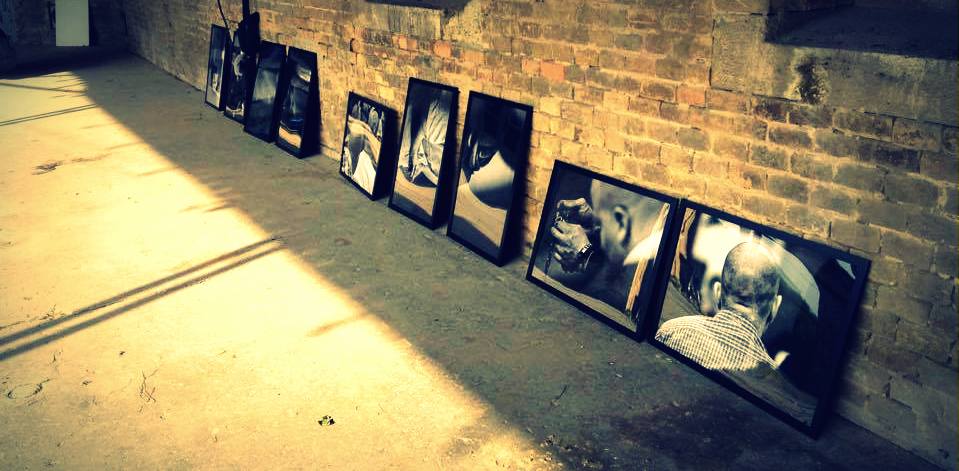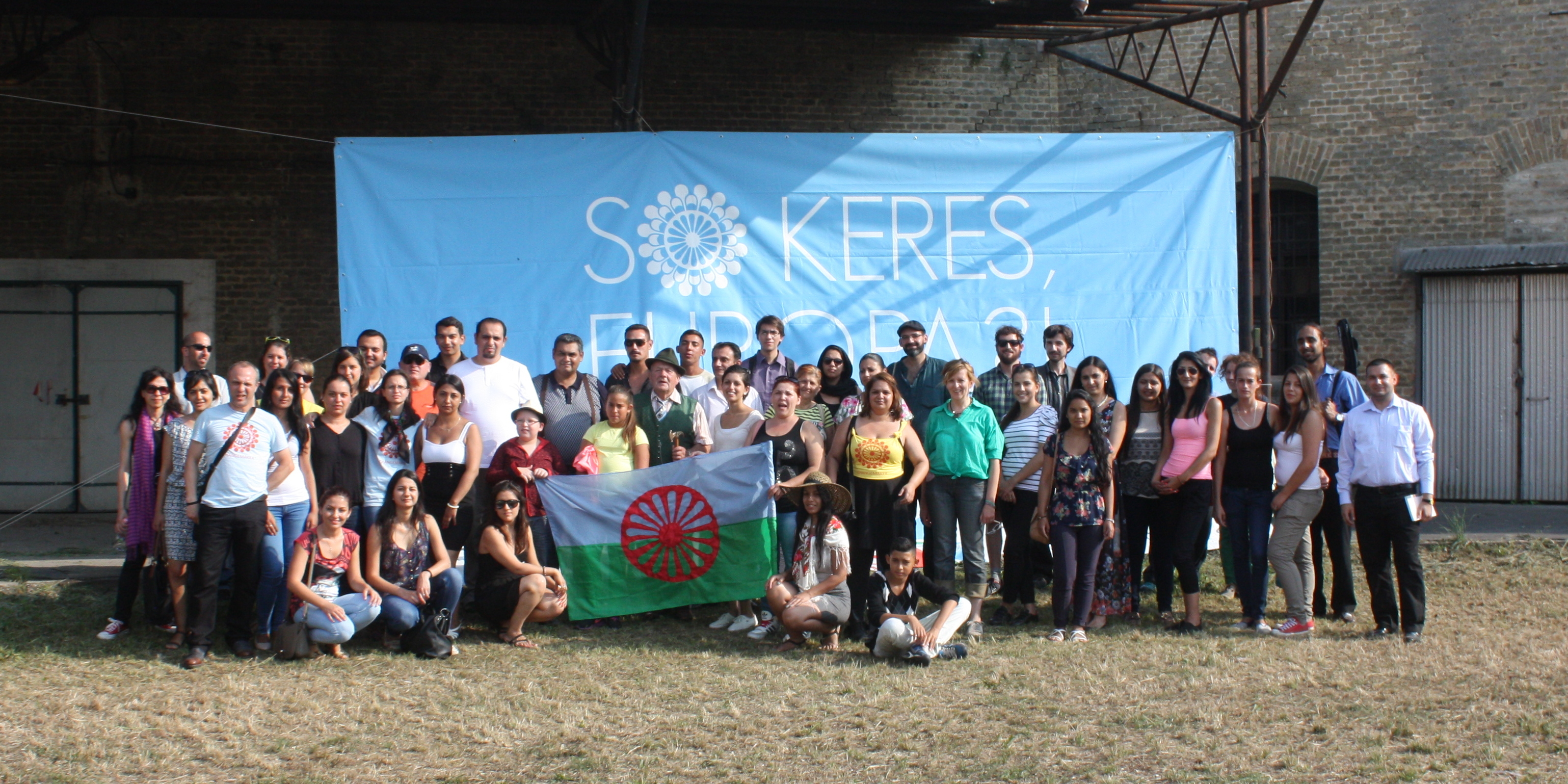 2nd of August – Roma Holocaust Commemoration in Komárom, Hungary
2nd of August – Roma Holocaust Commemoration in Komárom, Hungary
Phiren Amenca commemorated the Roma Holocaust on August 2, 2015 in the Csillagerőd (Star Fortress) in Komárom, Hungary.
This year we organised this commemoration in the fortress where in 1944 thousand of Roma people were collected from all around Hungary, before they were deported to other concentration camps. With this event we wanted to pay tribute to the Roma who were victims of the Holocaust but also to the victims of the violent attacks Roma in Hungary between 2008-2009. With a photo exhbition by a fotographer Balázs Turay we payed tribute to them and made these cases more public, not to happen again!
During the attacks of 2008 and 2009, six people died and more were severely injured. So far none of the governments offered individualized remedy for the relatives of the victims. The monetary remedy in 2014 only helped the families temporarily, because most of them impoverished completely due to the violent attacks.
Since in the past 25 years the Hungarian society could not face the political mistakes of the last century, many people stay indifferent or even become hostile against the attacked families, wartime refugees, or traumas of other minorities. In this social atmosphere, it seems inconceivable to build up initiatives that are long-lasting and based on mutual appreciation, that provide substantive help to people in need regardless of their ethnic or religious background.
Here you can read the speeches of the Phiren Amenca team and volunteers in English, Romanes and Beás: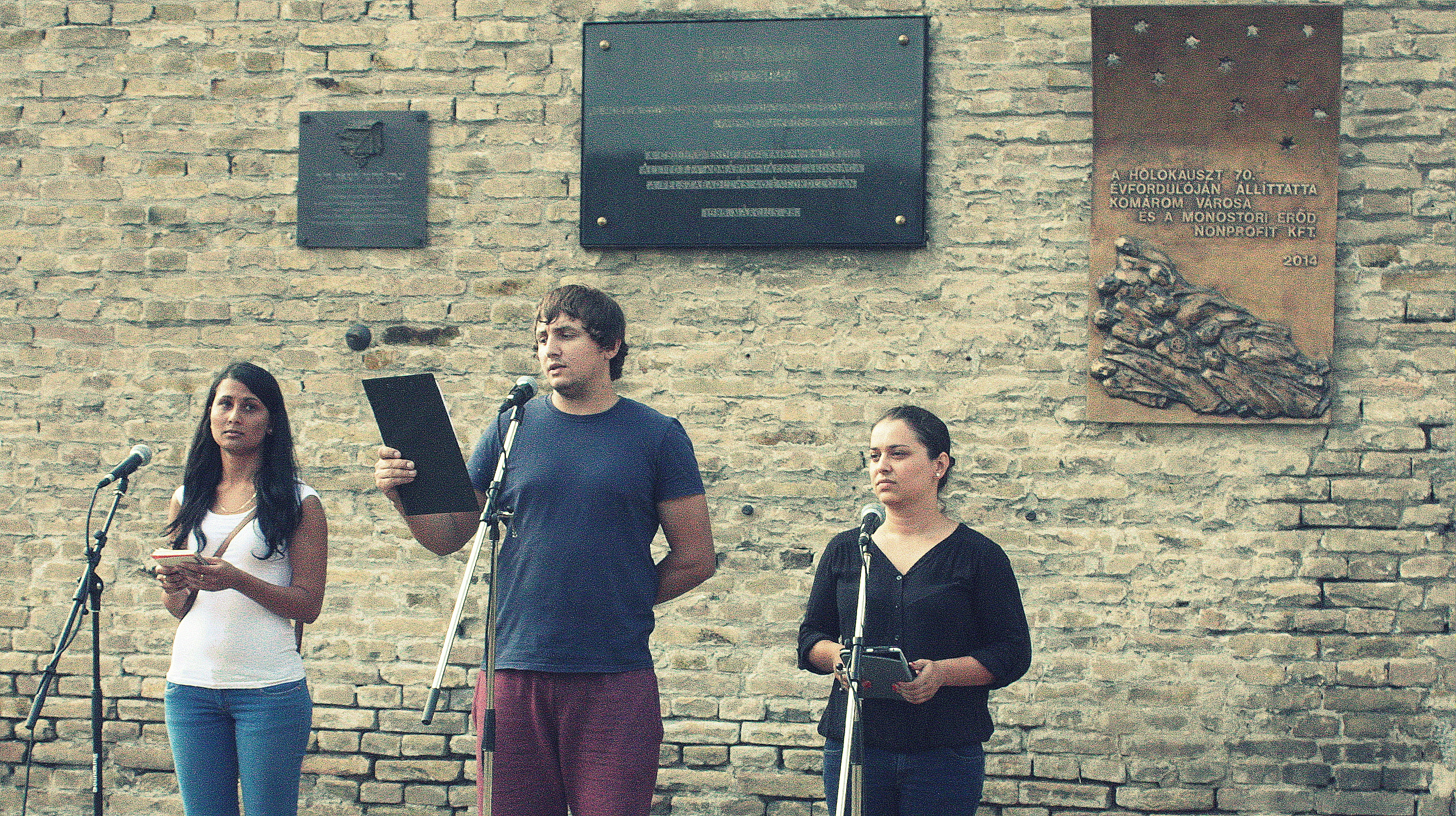
“Dear Friends, Those who commemorate,
Our event pays tribute to the memory of those who were violently murdered due to a destructive ideology. This place where we now stand used to be the biggest and the most dreadful internment camps of Hungary. Thousands of Roma people were collected here and sent to concentration camps on a weekly basis, where they became victims of large-scale executions, medical experiments or tortures. Hundreds died here due to starvation, inhumane conditions and violence. The inhumane acts that took place here and in the huts of the concentration camps are so shameful in human history that they can never be forgotten. We are the last generation who has real connections in life with the survivors of Holocaust. We have to remind the new generation about the horrors of the Holocaust, so the growing xenophobia, racism and antisemitism would not emerge in public discussions or in the political decision-making. It is our duty to keep and pass on the memory of the horrors to the next generations. We have to remind them where exclusion, radical ideologies, and discrimination could lead to. We must learn from the past, keep an eye on the present, in order to have a future.
It should never be forgotten: the horrors of Auschwitz did not begin with gas chambers. Blaming and frightening an ethnical group and creating discriminatory legislation led to the situation where millions were deprived of their goods, their dignity and their lives in the end. We have to admit: these phenomena are present separately and together as well in our society today. Hundreds of thousands have to face stigmatization, deprivation of rights and inhumane treatment on a daily basis. Forced evictions and denial of rights happen every day and still there are so few who raise their voices against these. Thousands of Roma people live today, in the 21st century in the middle of garbage dumps, in huts, in third world situations. Today again, people are evicted and their houses are being destroyed due to their ethnic origins. Thousands of Roma people seek shelter, a better living and hope in foreign countries in other continents. They are excluded from the society by walls and fences, while institutionalized discrimination and racism make their everyday life difficult. Disapproval and stigmatization of Roma people are extended with xenophobic and anti-immigration ideologies today. People are again on the side of hatred and violence. We have to speak up: if we continue to go on this path, then we cause the exclusion and execution of our fellow citizens again on the basis of political ideologies. We should not want this!
We have to fight together against hatred and exclusion!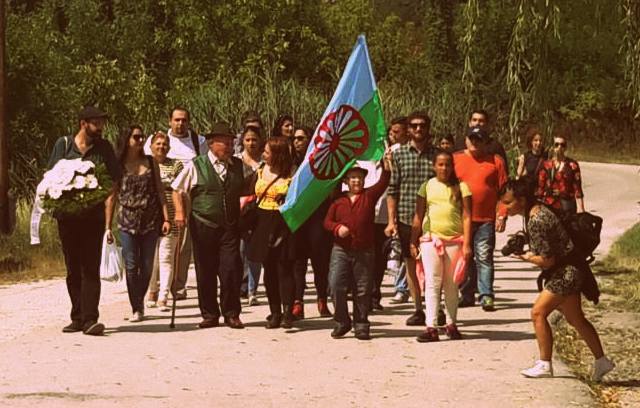
The time has come when the Roma people do not only live for survival on a day-to-day basis, but when they can actually live and plan their lives and futures. We cannot let them steal our futures as they have done with our pasts and as they are doing with our presents.
We, young people, understand that the time is ticking. We see, hear and feel the oppressive efforts and the hatred. We cannot let them make us scapegoats again so we have to face the dark side of history another time. We will be and we are the unbreakable walls of antisemitism and antigypsyism. Our acts, thoughts and power of will are going to forestall a new holocaust in history. Let us state: we have to remember and remind people about the facts of reality not only by words but by acts as well.
We already prove: as representatives of the new generation, we lay the groundwork and break the walls in order to build peaceful and more livable society. With our 5000 activists in 20 countries, we fight against discrimination in order to enhance real social integration. Exactly one year ago we, together with 1000 activists from 20 countries arrived to Birkenau camp to remember our fellow citizens who were executed there. There has never been so many of us. We created the remembrance of Romani resistance. As a result of our loud voices and fight, the European Parliament officially recognized the Roma Holocaust. Three weeks ago we showed Europe that Cluj-Napolca can be the capital city of the Roma youth as well. We can regard our event as a milestone as well: here in Csillagerőd (Star Fortress) we honor the memory of the victims. In a symbolic, historically important venue. We do this by our own will of power, we, the representatives of the new era, new perspectives, new ideology and the future. We set example for the present and the posterity while we bravely face with the past.
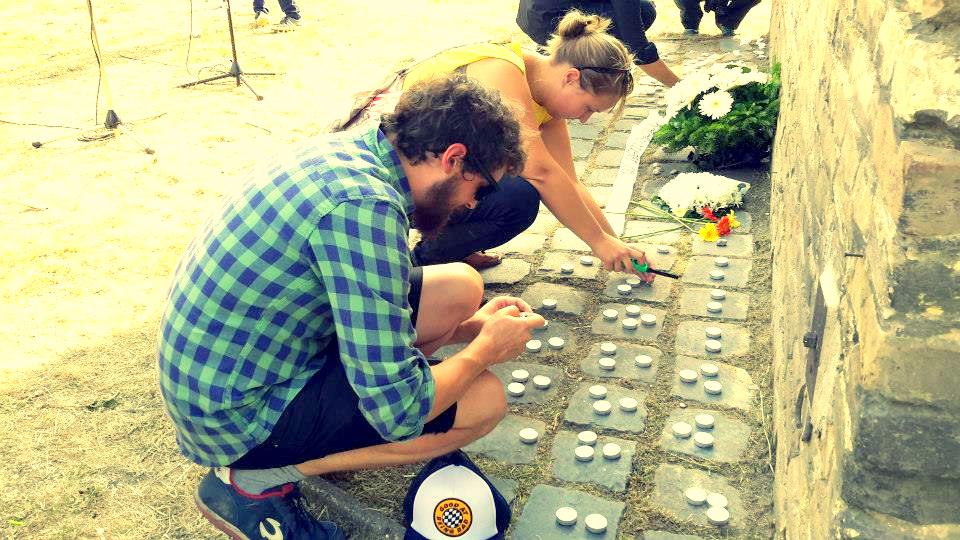 While remembering the executed women, children and men 71 years ago in the death camp of Birkenau, we also pay tribute to those who were recently murdered due to their ethnic origins. By the exhibition of Balazs Turai, we remember those people who were murdered between 2008 and 2009, including a mother who was killed in her home in Kisléta by followers of the Neo-Nazi ideology on the night of the Day of the Roma Holocaust. Mária Balogh, as Robika Csorba and his father are victims of Neo-Nazism.
While remembering the executed women, children and men 71 years ago in the death camp of Birkenau, we also pay tribute to those who were recently murdered due to their ethnic origins. By the exhibition of Balazs Turai, we remember those people who were murdered between 2008 and 2009, including a mother who was killed in her home in Kisléta by followers of the Neo-Nazi ideology on the night of the Day of the Roma Holocaust. Mária Balogh, as Robika Csorba and his father are victims of Neo-Nazism.
Today, the 2nd of August is the day of silence and quietness. We have to say it out loud jointly, together: Dik I Na bistar – Look and do not forget!”
Ame sam Roma kathar saure luma, kathe sam te seres porrajmos Romano thaj te phenas so hatyaras thaj so gindinas pala kodoya so Rom peshisardine thaj pashin akanak.
Amenge phares te phenas palal kadoya vrama kana lingerde thaj mudarde le Romen numa andogodoya ke von sas Rom. Ame na zhanas te paruvas so sas kothe. Amari butyi te seris so pashisardyau, amari familija, amare nyamura, nacija thaj te na bistras so sas .
Ame phenas ke adyes se lagajmos andej ungrikani thaj europaki historija, so sikavel amenge pa kadaya vrama kana nyamco mudarenas le Romen. Kana, le manusha, le gazhe dikhline so kerelas le nyamco thaj agutinas lenge.
Akanak ame kahate sam te mares tele discriminacija thaj o rasszizmo thaj te ushtays anda o anav le Romengo. Ame sam terne thaj trubuv te azhutis le Romenge te trajis majmishto.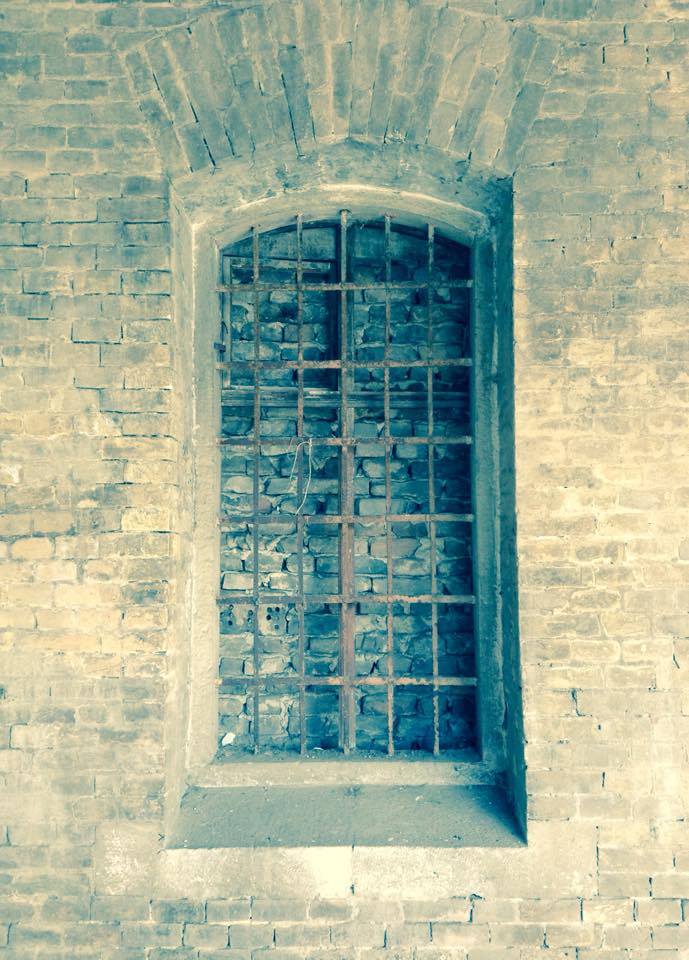
Trubul te zhanas amari historija, thaj te sikavas amaren chavoran , trubul te zhanel so kerdayv o nyamco , sar ingerde ande tabori thaj mudarde le Romen .
Le manusha trubun te sityon kathar e historija, ke ame but potyindam, thaj nig kau eak manush naj voja, te mudarel avre manushas ke von si kalo, parno taj anda aver nacija.
Akanak kathe si e vrama te paruvas e luma, naj ame vojay te bistras so pecisardine Rom , trubul te se teos amare istoria taj te ganasla mishto , thaj ten a ashas muto thaj kora, trubul te vazdas opre amare glasura.
“Sáptyézăsj sî unu dă ány o trikut dă zuáje, kînd, înnentye dă agusztus dă lá dauă dă száră pîn lá trij dă gyiminyácă, în Auschwitz-Birkenau nyámcî or ámurît máj mult dă trij mij dă cîgány. Sî dîn Komárom ly-or dusz pă jéj. Zuásztá o rusînă máré-j, păntru kă aminyi kînvá j-or înkrizut lu Hitler, sî n-or făkut nyimik, or lăszát, kit nyámcî sză ly-ámaré pă cîgányi. Dá nu numá ly-or lăszát, sî j-or ázsutát. Sî dá dă sjé? Păntru kă pelyé bárnă áve, sî cîgány ăszrá. Sî áku într-áfelă cárá kusztăny, hungyé aminyi unyirj inká ásá sză gîngyestyé. Dá sî noj, sî kupiji, urtásji nostri trébé sză styijé, kă cîgányi pă sjinyé lyor amurît nu-szrá álc dăkit noj, áfel ăszrá, ká noj. Ásztăz d-áje szîntyény uná áisj, sză nyé vijé în firé, sză nyé gîngyény pă kupiji, pă cîgánsji sî pă cîgányi pă káré nyámcî ly-or ápukát, ly-or bătut, ly-or dusz sî ly-or ámurît. Áku áisj szîntyény, sî lukru nosztru ăj sză rîgyikăny szusz vorbé nastré, sză dusjény vorbé dăpă zuásztá, sză nu sztătyény orbj sî szurd, ká nyimik n-o foszt. Áku trébé dăsztyizsjény otyi nyé sză nu mujtăny nisjodată sj-or păcît cîgányi, k-ásztá nu patyé sză fákă nyime ink-odátă. ”